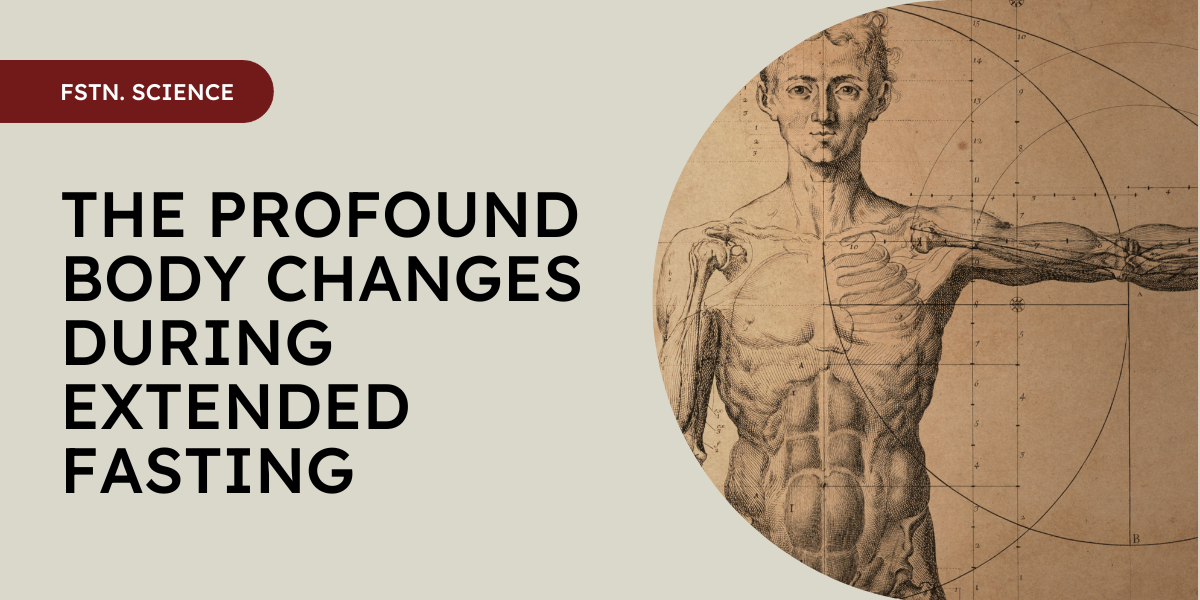The Profound Body-Wide Changes During Extended Fasting

A groundbreaking study published in Nature Metabolism has shed light on the extensive changes that occur throughout the human body during prolonged periods of fasting. Researchers from Queen Mary University of London conducted an in-depth analysis of how a 7-day water-only fast affects the human body at the molecular level, revealing surprising insights into the potential health benefits of fasting beyond simple weight loss.
Key Findings
The study, which involved 12 volunteers (5 women and 7 men), uncovered several significant discoveries:
- Weight Loss: Participants lost an average of 5.7 kg (±0.8 kg) over the 7-day fasting period.
- Systemic Protein Changes: The researchers observed changes in about one-third of the approximately 3,000 plasma proteins measured, indicating a whole-body response to complete calorie restriction.
- Timing of Changes: Significant alterations in protein levels became apparent only after three days of fasting, suggesting that shorter fasting periods may not trigger the same systemic responses.
- Consistent Patterns: The multi-organ response to fasting was remarkably consistent across participants, with over 1,000 proteins showing significant changes.
- Non-Metabolic Adaptations: The study revealed profound non-metabolic adaptations, including extreme changes in brain-specific extracellular matrix proteins.
Implications for Health and Disease
The researchers used proteogenomic approaches to estimate the potential health consequences of 212 proteins that changed during fasting.

They identified both potentially beneficial and adverse effects:
- Positive Associations: Changes in proteins like SWAP70 were linked to potential benefits for rheumatoid arthritis, while alterations in HYOU1 were associated with heart disease improvements.
- Extracellular Matrix Changes: The fasting signature showed strong enrichment for extracellular matrix proteins from various body sites, suggesting widespread structural adaptations.
Dr. Claudia Langenberg, Director of Queen Mary's Precision Health University Research Institute, emphasized the novelty of these findings: "For the first time, we're able to see what's happening on a molecular level across the body when we fast. Our results provide evidence for the health benefits of fasting beyond weight loss, but these were only visible after three days of total caloric restriction – later than we previously thought".
Dr. Maik Pietzner, co-lead of the study, added: "Our findings have provided a basis for some age-old knowledge as to why fasting is used for certain conditions. We hope that these findings can provide information about why fasting is beneficial in certain cases, which can then be used to develop treatments that patients are able to do".
Conclusion
This study marks a significant advancement in our understanding of how prolonged fasting affects the human body. By revealing the systemic nature of the body's response to complete calorie restriction, it opens up new avenues for research into potential therapeutic applications of fasting-induced changes. However, it's important to note that the study also highlights that these profound changes only occur after three days of fasting, suggesting that shorter fasting periods may not yield the same results.
As research in this area continues, it may lead to new insights into how fasting could be used to manage certain health conditions or develop targeted interventions that mimic the beneficial effects of fasting without the need for extended periods without food.
References
- Pietzner M, Uluvar B, Kolnes KJ, Jeppesen PB, Frivold SV, Skattebo Ø, Johansen EI, Skålhegg BS, Wojtaszewski JFP, Kolnes AJ, Yeo GSH, O'Rahilly S, Jensen J, Langenberg C. Systemic proteome adaptions to 7-day complete caloric restriction in humans. Nat Metab. 2024 Apr;6(4):764-777. doi: 10.1038/s42255-024-01008-9. Epub 2024 Mar 1. PMID: 38429390.






